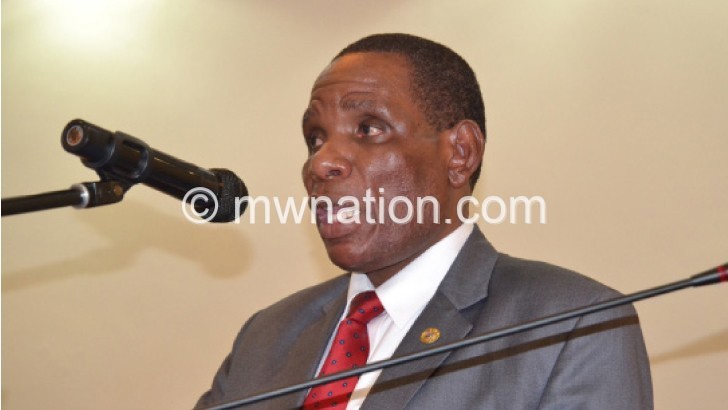Government takes stock of 2018/19 Fisp
Minister of Agriculture, Irrigation and Water Development Joseph Mwanamvekha has described the 20218/19 Farm Input Subsidy Programme (Fisp) as a success despite encountering some irregularities along the way.
Speaking during his tour of the Small Holder Farmers Fertiliser Revolving Fund of Malawi (SFFRFM) warehouse recently in Blantyre, Mwanamvekha attributed the success of the programme to private sector involvement, early start of the programme as well as availability of fertiliser supplies.

He said: “The 2018/19 Fisp was a very successful programme because there was more private sector participation. And because of that, there was reduced participation by government. We had 46 companies in the Fisp programme [compared to 17 the previous season] but only 35 companies participated this year.
“The other thing is that we also started in good time and another contributing factors is early provision of inputs which are fertiliser and seed. We also had more fertiliser supplies that is why you have noted that SFFRFM still has a buffer stock of 21 000 metric tonnes aside from that of the private sector which will also be enough for the winter cropping and the 2019/20 programme,” he said.
The minister disclosed that Treasury has released K1 billion for the winter-cropping programme, which will be supplemented by contributions from donors and other non-governmental organisations.
He said the determination of beneficiaries will depend on the Malawi Vulnerability Assessment Committee (Mvac) report.
Delivering his budget statement in May 2018, Minister of Finance, Economic Planning and Development Goodall Gondwe announced that government had allocated K42 billion to Fisp in the 2018/19 agricultural season, targeting one million beneficiaries.
There were 1 .5 million beneficiaries in the 2018/19 farming season which was an increase from 900 000 in 2017/18.
Parliament approved the money to distribute 100 000 metric tonnes (MT) split between Urea and NPK fertilisers, 5 000MT of cereal seeds (maize, sorghum and rice) and 2 000MT of legume seeds (soya beans, beans, groundnuts, cowpeas and pigeon peas).





